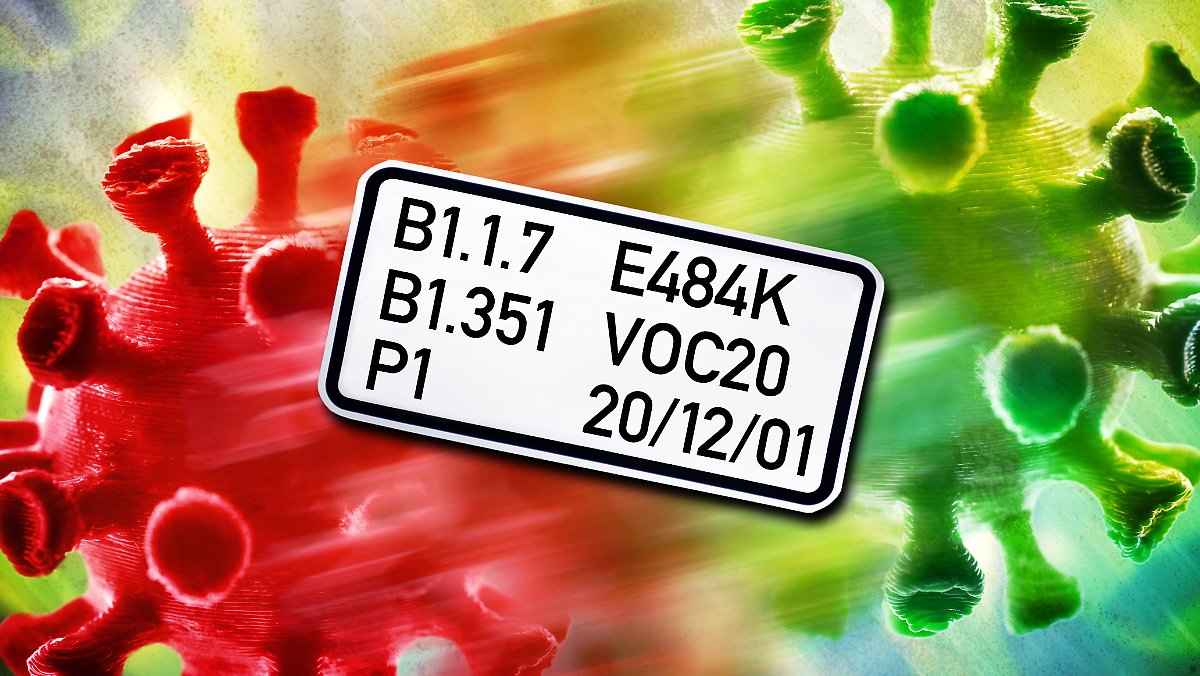
SARS-CoV-2 adapts: B.1.525 has arrived in Germany
Tuesday 9 March 2021
The SARS-CoV-2 virus adapts
B. 1.525 arrived in Germany
Many people in Germany are only looking to mitigate, as a relatively new mutation of the virus has been discovered in Germany. 1.525 is possibly more contagious than the original variant of Sars-CoV-2.
For the first time, a new Sars-CoV-2 variant with the designation B.1.525 was discovered in Germany. This was announced by the Centogene Laboratory in Rostock, which has also been conducting corona tests since the end of June 2020. In a positive sample, so-called whole genome analysis has now been used to identify the mutation, which is perhaps of concern. The sample was taken from a person from the state of Saxony at the test center at Berlin-Brandenburg Airport (BER). Message. It is similar to the English variant B.1.1.7, but it also has – like the South African and Brazilian variant Sars-CoV-2 – the E484K mutation for the spike protein.
Because of this similarity to the more contagious variants of MERS-CoV, B.1.525 also indicates that it is much more contagious than the original virus. “The B.1.525 mutation combines the characteristics of the British, Brazilian and South African variants. So it is quite possible that it is more contagious than the other variants, and each already has a higher infection rate than the wild type,” explains Peter. Bauer from Centogene.
New variant in 20 countries
1525 has been detected about 300 times in 20 countries such as Denmark, Italy, Nigeria, Norway, Canada, Great Britain and the USA. According to the notification, this was the first evidence of this variant in Germany. “In principle, you have to imagine that viruses are trying to spread and everything that serves them is good for them. Viruses multiply enormously and such changes happen by chance,” explains Dr. Christoph Specht in an interview with NTV.
Specht explains that the virus is either trying to be able to penetrate cells faster or to be transmitted more quickly from person to person. It also tries to evade the immune system – for example, by vaccination or infection. “So if someone becomes infected, the virus must change to attack again.” This appears to be what the new variant does. This is why experts currently assume that variant B.1.525 is not only more contagious than others, but also that the immune system can evade it better.
However, that does not mean that the vaccinated people are completely defenseless, Specht continues. However, one must assume that the immune defense against this variant is slightly worse than when the original Sars-CoV-2 variant was attacked.
According to the Robert Koch Institute, the new substitute came to Germany earlier. He already had it in “Report on viral variants of Sars-CoV-2 in Germany”, Published on March 3, 2021, explains: “In addition, the variable under observation B.1.525 was also detected in 2021, and its share in the week 03-07 / 2021 was between 0.1 and 0.5 percent.”

“Unapologetic pop culture trailblazer. Freelance troublemaker. Food guru. Alcohol fanatic. Gamer. Explorer. Thinker.”
